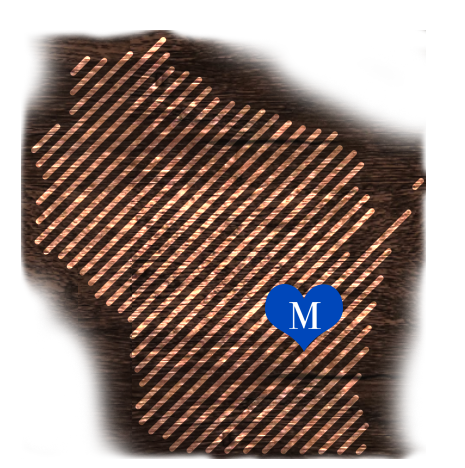When Jodi Swan decided to enter Marian University’s Master of Science in Thanatology program, she immediately discovered how quickly students could develop supportive relationships.
She said the university promoted those relationships in two significant ways. One is an online learning system that she said proved intuitive, accessible, and user-friendly. The other is Marian University’s commitment to capping class sizes.
“The classes are kept quite small, which allows us time to gel and support one another,” Swan said during a recent webinar about the MS in Thanatology degree program. She said creating such a “safe place” is crucial for students to “share, learn and be vulnerable, which is essential when we are talking about thanatological issues.”
She added, “You get to build those varied friendships with your colleagues and classmates from around the globe. It’s wonderful. You’re never alone in this program.”
“There are very few thanatology degree and certificate programs in the world,” said program director Dr. Korie Leigh in the webinar. The online format attracts students “from all over the world,” says Leigh. “We are a global community.”
In the webinar, adjunct professor Dr. Rebecca Morse emphasized the academic and professional experience of the faculty. “Professors are specifically selected for courses they teach based on experience, not workload,” Morse says.
Learn all about the online MS in Thanatology degree program in the webinar:
What Is Thanatology?
A person who practices thanatology supports individuals and families confronting end of life, loss, grief, and bereavement. Thanatology is a scientific discipline that considers death and bereavement from many different viewpoints, including ethical, medical, physical, psychological, sociological, and spiritual.
Thanatologists work in a variety of places, including hospitals, hospices, nonprofit organizations, churches, funeral service providers, and government agencies. They may also focus on specific population groups such as children, veterans, and parents.
Marian University offers one of the few thanatology degree programs in the world.
Who Benefits From Earning a Thanatology Degree?
As a professional who holds a master’s degree in social work and a license as a funeral director in her home country of Canada, Swan represents one of the two main types of students who enter Marian’s University’s thanatology program.
Dr. Rebecca S. Morse, a grief and bereavement expert and a faculty member in the thanatology program, said the program typically attracts “two different flavors of students.”
One includes those with established thanatology careers or jobs in industries where knowledge in thanatology can enhance their professional abilities.
“They’re already in an industry, they already have a background, and they’re looking to enrich their education and their expertise,” Dr. Morse said. “Or they’re looking to have the credentials to help support what they’re doing because they need that extra, professional validation for what they’re doing.”
The other group “are those who are planning to do more of the research, the education,” Morse said.
Dr. Korie Leigh, program director and associate professor for the MS in Thanatology and Certificate in Thanatology programs at Marian University, said the thanatology program benefits individuals motivated to “better understand the intersection of death and dying and grief and bereavement.” This includes those wishing to start their bereavement practices or are working in professions that include social workers, child life specialists, funeral directors, doctors, nurses, medical examiners, and police officers.
Advantages of the Marian University Thanatology Degree Program
Marian University’s MS in Thanatology is a 36-credit program that includes a thesis or capstone project. The program is offered 100% online and is asynchronous. The format allows students to fit classwork into their schedules and participate in the program from where they live.
“One of the things that is really great about that is we have folks from all over the world,” said Dr. Leigh. “We have a global community in the program.”
Marian University also offers a Certificate in Thanatology. Dr. Leigh said many of the students in the certificate program already have a master’s degree and are seeking to expand or enhance their professional practice. Some students start in the certificate program then transfer to the master’s program.
Marian University caps all classes at 17 students, with few exceptions. Professors in the program are are scholars, researchers and clinicians considered experts in the topics they teach.
The program has pre-approval from the Association of Death Education and Counseling (ADEC). The program curriculum has gone through a process that ensures what Marian University teaches will prepare graduates to sit for certification from ADEC.
Marian University also offers discounts to members of the National Alliance for Children’s Grief, the Cincinnati College of Mortuary Science, the National End-of-Life Doula Alliance, and the Coalition to Transform Advanced Care.
Potential Thanatology Careers
Graduates from the MS in Thanatology program go on to careers in many different areas. They include work for nonprofit agencies, funeral services, hospitals, and independent practice. Others work in administration and policy, said Leigh, adding, “We have a lot of graduates who are directors of programs.”
A current student works in the Australian Parliament and plans to integrate thanatology into her policy work. Graduates from the program include the bereavement coordinator at Cincinnati Children’s Hospital and the founder of a hospice house in Mozambique.
Swan said that people considering the program should make the leap and “go for it.” She said the thanatology program “really broadened my understanding, knowledge, and skills. It serves me well in my day-to-day practice either as a funeral practitioner or a social worker.“
She also said the Marian University faculty provides all students a boost. “They are incredibly genuine, they’re approachable. And they know how to engage and support one’s learning,” Swan said. “The experiences with your classmates and your faculty really help to develop who you are as a person, particularly in the context of the field of thanatology.”


